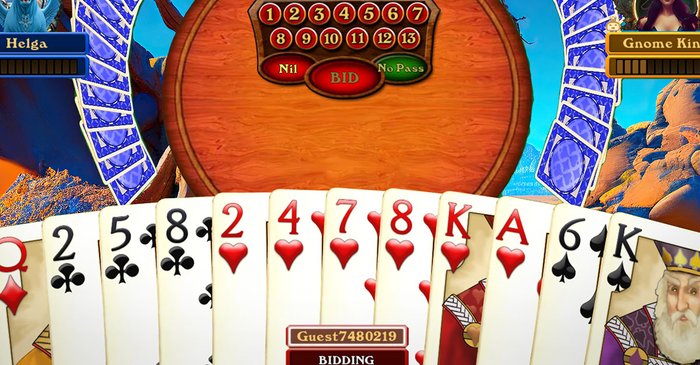14 Key Strategies for Winning Spades

14 Key Strategies for Winning Spades
-
Avoid Overbidding: Overbidding can lead to "bags," which are excess tricks over the amount you bid. Accumulating ten bags results in a 100-point penalty.
-
Bags Can Be Useful: In certain situations, intentionally collecting bags can be beneficial, especially if it prevents your opponents from fulfilling their contract.
-
Develop a Bidding Strategy: A good starting strategy is to bid one trick for each spade that's 10 or higher, and one trick for each ace and king that's not a spade.
-
Consider Other Players' Bids: Other players' bids can influence the number of tricks you might win, so adjust your strategy accordingly.
-
Know When to Be Aggressive: If you're significantly behind, it might be time to bid more aggressively.
-
Keep an Eye on the Score: Always be aware of the score to adjust your strategy as needed.
-
Bid Blind or Nil If You're Behind: Bidding blind or nil can be a risky but potentially rewarding strategy if you're behind.
-
Remember the Cards: Keeping track of which cards have been played can help you make more informed decisions during the game.
-
Lead With a Low Spade: If you have many spades, leading with a low spade can deplete other players' spades, making your remaining spades more powerful.
-
Use Aces Early: Use aces before spades are broken to ensure you win the trick.
-
Choose a Good Partner: Having a good partner is crucial in Spades as the game requires effective teamwork.
-
Be a Good Team Player: Adjust your strategy according to your partner's performance and help them fulfill their bid if necessary.
-
Keep Player Order in Mind: The order in which players play their cards can significantly influence the outcome of a round.
-
Match Strategy to Number of Tricks Bid: Your team's number of tricks bid should dictate how aggressive or conservative your strategy should be.
Final Thoughts
Mastering Spades requires practice, a good understanding of the game's rules, and effective strategies. By following these tips, you can improve your skills, enjoy the game more, and maybe even compete in professional tournaments. Remember, the key to success in Spades is not just about having the right cards, but also about knowing how to play them.
